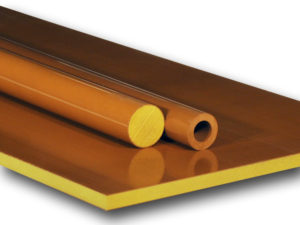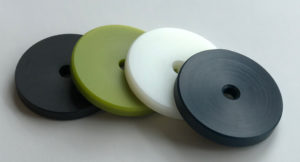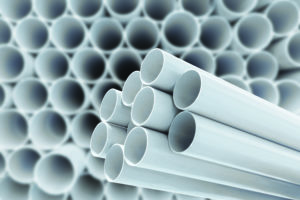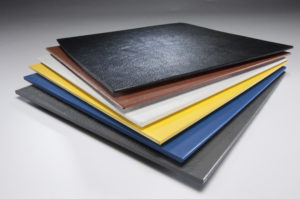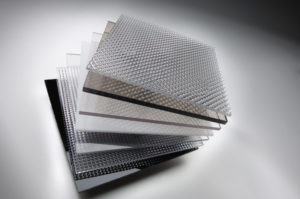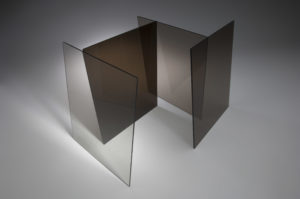Industrial and electronic equipment requires heat resistance, low conductivity, and insulating properties to promote safety in the electrical industry. To promote long-term safety compliance, it's important for every material to have all the right resistances and qualities. While metals are a vital component of many systems, they all need a stable, nonconductive material to help keep the currents under control. There is a wide selection of high-quality insulating plastics available to ensure every system runs as intended.
Polymershapes will work with your team to identify the ideal material for your enclosure application. Whether you need a plastic electrical box or non-conductive mechanical components, Polymershapes works with industry-leading plastics manufacturers to ensure you have the material you need.
Electrical-Grade Plastic Features and Benefits
Electrical-grade plastics should be nonconductive so they can protect the flow of electricity and reduce shock risk. The right material can be used in both indoor and outdoor applications, in hazardous or non-hazardous conditions. Many applications require wide temperature tolerances, corrosion and weather resistance, flame-retardant properties, and more.
Polymershapes is a leading distributor for a wide selection of plastic components in the electrical industry. Selecting the right plastic material is important. Important qualities for electrical applications include:
- High impact resistance
- Tensile strength
- Thermoformable
- Nonconductive/high dielectric strength
- Static dissipative/fully conductive options may be available
- Inherently good insulation
- Chemical, UV, abrasion resistance
- High continuous operating temperatures
- Hydrolytic stability
- Flame resistance/smoke generation
- High creep resistance/mechanical strength
Plastics Used in Electrical Applications
Plastics that are best for electrical applications include:
- Acrylic (Polymethyl Methacrylate, PMMA)
- Acrylonitrile Butadiene Styrene (ABS)
- Nylon (Polyamide, PA), Nylatron®
- Polycarbonate (PC)
- Polyamide-imide (PAI)
Acrylonitrile Butadiene Styrene (ABS)
Operating Temperatures: -4°F - 176°F (-20°C - 80°C)
ABS plastic sheets are widely renowned for their dielectric strength, impact resistance, and chemical resistance. Its long list of resistances and qualities makes it one of the most common plastics in electrical applications. With excellent insulation, low conductivity, and shock protection, ABS has an array of uses throughout the industry. It also has a very wide operating temperature range, making it one of the best plastic insulating materials.
You'll find ABS used in plastic electrical junction boxes, indoor electrical enclosures, electrical box covers, instrument panels, shrouds, housings, casings, and more.
Nylon (Polyamide, PA)
Operating Temperatures: -70°F - 250°F (-57°C - 121°C)
Due to the conductivity of metal, many applications require plastic parts that provide the same durability while eliminating any hazards. Nylon 6, such as Mitsubishi Chemical Group’s Nylatron® , is a common solution. As a semi-crystalline polyamide, nylon is tough and resistant to wear.
With its impact resistance, moisture resistance, and durability, nylon is a fantastic electrical insulator. It is also highly resistant to heat and UV radiation, making it a popular solution for harsh operating environments. Nylon 6 is a cost-effective material for an array of applications, while nylon 6/6 may be used in more demanding ones.
Nylon is commonly found in cable ties, power tool housings, screws, washers, bolts, circuit board hardware, connectors in mobile devices, motherboards, and more.
Polycarbonate (PC)
Operating Temperatures: -4°F - 265°F (-20°C - 130°C)
Polycarbonate is widely revered as one of the strongest, most reliable plastics available. Polycarbonate’s excellent durability and shatter resistance make it the ideal alternative to metals, glass, and ceramics. It can outperform ceramics and glass due to its strength, UV resistance, and chemical resistance, especially in demanding applications. PC also contains strong flame retardant and low conductive properties. Lastly, it allows for large quantities of radiowave traffic to travel freely without any interference.
Polycarbonate is common in high-temperature applications, including plastic weatherproof electrical boxes, junction boxes, GFCI enclosures, electrical enclosures near water, wireless applications, and more.
Acrylic (Polymethyl Methacrylate, PMMA)
Operating Temperatures: -238°F - 140°F (-150°C – 60°C)
Acrylic is steadily replacing glass throughout many industries. Its insulating properties, wide operating temperature range, and protective qualities make it a common material for protecting system components. It also has among the best weatherability among clear plastics. It is commonly used in plastic electrical enclosure boxes, electrical sign fences, etc.
Acrylic is the preferred electrical-grade plastic for optical and remote-control applications, where visual transparency is needed. It is an infrared transparent material, making it ideal for applications where vision plays a huge factor. Acrylic is often used as radar gun lenses, lighting fixtures, signage, and more.
Advanced Plastic for Extreme Electrical Applications
Polyamide-imide (PAI)
Operating Temperatures: Up to 500°F (260°C)
PAI is an imidized, high-performance thermoplastic material, developed to endure extremely high temperatures. Imidized engineering plastics are developed to withstand the harshest applications, equipped with extreme thermal stability and a wide continuous service temperature range. While standard plastics may degrade under extremely harsh conditions, PAI is specifically engineered to provide reliability where performance and endurance are needed.
PAI is known for being one of the best insulating plastics, providing the most reliable forms of protection. Due to its chemical/mechanical properties and thermal insulation, PAI insulated plastic sheets can provide safety and reliability under high voltage environments. PAI is commonly used as high-performance electrical connectors, plastic-covered insulation, gears or mechanical components in electrical facilities, etc.
Common Applications for Electrical and Electronic Plastic Materials
- Plastic covers for electrical boxes
- Indoor electrical enclosures
- Instrument panels
- Shrouds
- Housings
- GFCI plastic enclosures
- Arc shields
- Test boards
- Circuit boards, wiring boards
- Connectors — data, automotive, telecommunications, fiber optic
- High-voltage circuit-breaker housings
- Radar gun lenses
- Coatings for magnet wires
- Gears or mechanical components in electrical facilities
- Electronic test sockets and fixtures
- Conduits
- Weatherproof electrical boxes
- POP displays
- Electrical sign faces
